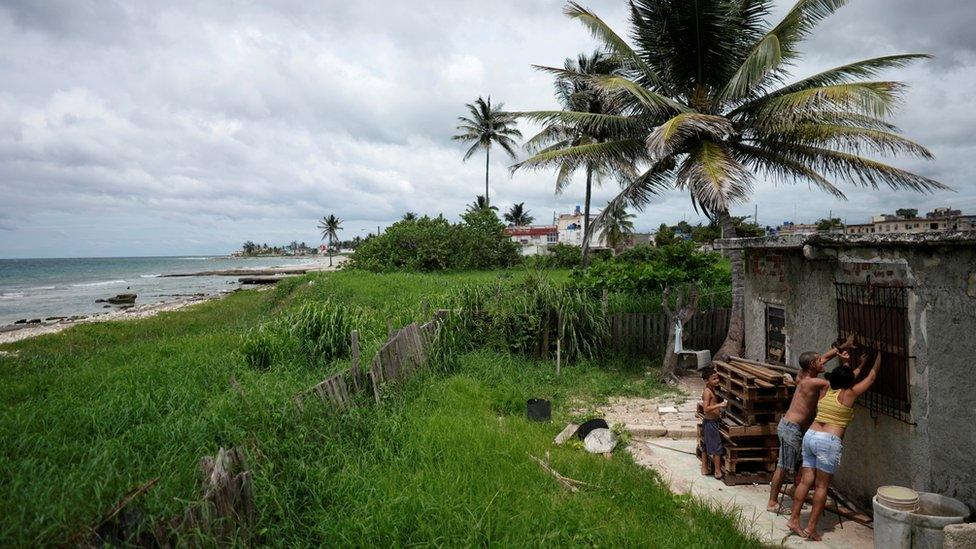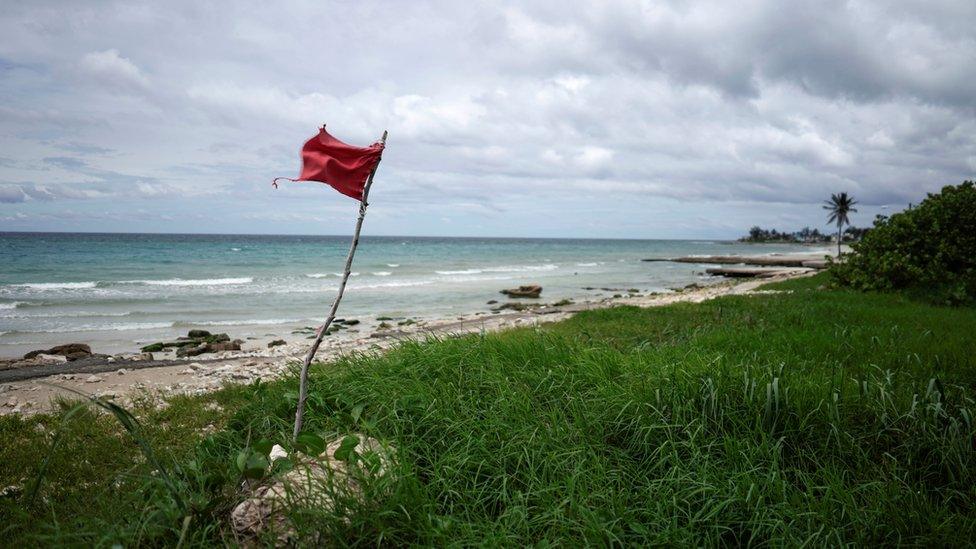Tropical Storm Elsa: Cuba reels as storm moves towards Florida
- Published

The storm is expected to dump up to 15 inches of rain as it exits Cuba
After causing devastation in the Caribbean, Tropical Storm Elsa is moving north towards the Florida Keys.
More than 100,000 people in Cuba were evacuated before Elsa hit on Monday, causing mudslides and "flooding rains".
In the days before, the storm passed over the Dominican Republic and St Lucia, killing three people.
Officials in Florida have said they are "very hopeful" that they won't have to pause rescue efforts at the site of a collapsed building in Miami.
The demolition of the partially collapsed apartment block had been brought forward, for fear that Elsa might topple the building in an uncontrolled way.
Forecasters have since shifted the storm's likely path westward, suggesting that rather than hitting Florida directly, it will only skim the state's southwest coast.
The storm is expected to approach the Florida Keys on Tuesday.

Elsa is now heading north from Cuba towards the Florida Keys
Cuba's meteorological institute Insmet said the storm had passed through the island with winds of up to 100km/h, with "some stronger gusts".
It added that Elsa was expected to dump heavy rains over the island as it exited.
By 21:00 local time on Monday (01:00 GMT on Tuesday) Elsa had moved out of Cuba towards the Gulf of Mexico.
Jose Rubiera, Cuba's best known meteorologist, said on state television: "The rain is coming behind the centre so the fact it is moving out to sea along the northern coast between Havana and Mayabeque... does not mean the rain is over."
Rainfall of 13 to 25 cm (five to 10 inches) was forecast across parts of Cuba on Monday night, with up to 38 cm (15 inches) in specific areas, the NHC said.
The storm hit Cuba as the country battled its worst Covid-19 outbreak since the start of the pandemic, raising fears that the mass evacuations could lead to a further spike in infections.
On Friday, Elsa became the first hurricane of the Atlantic season before weakening to a tropical storm.
At least two people died on Saturday when walls collapsed in high winds in the Dominican Republic on Saturday.
The victims were a 15-year-old boy in Barahona, in the south of the country, and a 75-year-old woman west of the capital, Santo Domingo.
On the Eastern Caribbean island of St Lucia, one man also died, according to Prime Minister Allen Chastanet.
In Barbados, hundreds of homes have reportedly been damaged.
Is global warming making hurricanes stronger?